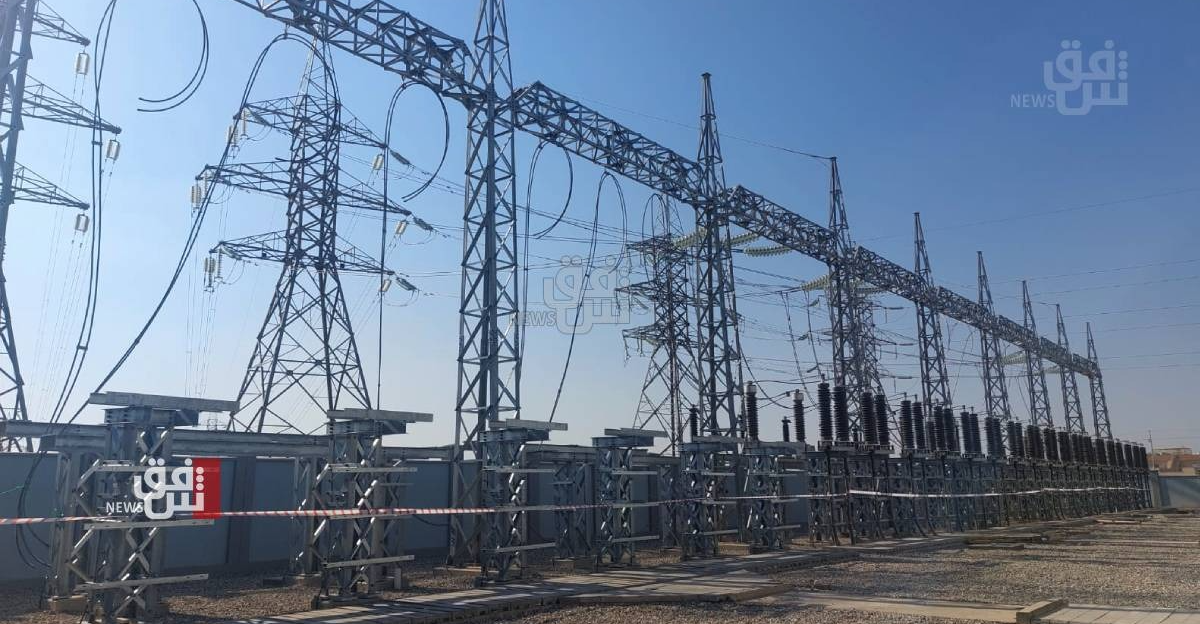Avoiding a life-or-death choice, Iraqis may lose the blessing of air conditioning and their last hope in the Gulf.
 Demand for electricity is doubling in the Middle East, particularly Iraq, threatening to exacerbate social and political unrest. Governments unable to secure a reliable source of electricity to power cooling systems, desalinate water, and keep the lights on during the summer months, risk losing legitimacy with the public.
Demand for electricity is doubling in the Middle East, particularly Iraq, threatening to exacerbate social and political unrest. Governments unable to secure a reliable source of electricity to power cooling systems, desalinate water, and keep the lights on during the summer months, risk losing legitimacy with the public.
However, The National newspaper proposes expanding the role of Gulf states in interconnecting electricity with countries in the region experiencing electricity shortages to address these challenges.
The newspaper report, translated by Shafaq News Agency, indicated that in countries where electricity is available 24/7, turning on the lights, cooking a hot meal, or enjoying the cool air are considered normal things. This is in contrast to countries where electricity is rationed, expensive, or unavailable for long periods, where electricity shortages exacerbate a host of other social, political, and economic problems.
He explained that without reliable electricity, critical facilities such as hospitals, water treatment plants, and telecommunications falter. He added that when energy costs rise, the prices of everything from transportation to basic goods increase, creating frustration and sometimes unrest. He noted that industries slow down or shut down during power outages, exacerbating unemployment and poverty.
“Even more damaging is that failure to ensure a consistent supply of energy undermines public confidence in government, as authorities that cannot even keep the lights on risk losing their legitimacy,” the report added. “Many Middle Eastern countries have suffered from this cascading effect, with those experiencing conflict or emerging from war being the most affected. Syria, Iraq, Lebanon, Yemen, and Sudan are among the countries affected.”
Regarding Iraq specifically, the report stated that more than 20 years after the war that toppled Saddam Hussein’s regime, the country remains without a stable energy supply. It noted that in August 2022, the oil-rich city of Basra witnessed days of angry protests after power line failures and a fire at a power plant caused power outages amid temperatures reaching 50 degrees Celsius.
The report also cited Lebanon as another example, explaining that years of intermittent power outages have led to reliance on polluting private generators, which has empowered criminal groups that profit from black market fuel.
He warned that these problems will worsen, pointing to a new report issued by the International Energy Agency, which reveals that electricity demand in the Middle East and North Africa has tripled since 2000 and is expected to rise by 50% by 2035, due to rapid population growth, urban expansion, and industrial growth.
The report quoted the Executive Director of the International Energy Agency, Dr. Fatih Birol, as saying, “Everyone is talking about China and India as the epicenter of global electricity demand growth, but the Middle East and North Africa region is a dark spot in these discussions.”
He continued, “The narrative presented by the IEA report represents a tale of two regions. There are countries in the Gulf that are investing billions in reliable and renewable energy sources such as nuclear power, wind farms, solar power plants, and gas, while nuclear reactors are under construction in Egypt and Iran. But the second story concerns countries that face different challenges in terms of providing energy to meet growing demand.”
The report returned to Iraq, stating that “the International Energy Agency estimates that the energy shortage in Iraq between 2014 and 2020 alone cost the economy more than $95 billion.”
In Syria, according to the report, available power generation capacity in 2022 fell to just 38% of pre-war levels, far below what the country needs. Meanwhile, conflict-affected Libya has suffered similar problems, with power generation capacity halved during the civil war.
Therefore, the report concluded, countries with high electricity generation and transmission capacities can make a difference. It explained that Iraq, for example, has an agreement with its Gulf neighbors to import electricity through the Gulf Cooperation Council’s Electricity Interconnection Authority. It believed that expanding such an agreement could support other countries trying to secure energy supplies for their economies and citizens.
According to the report, these long-term technocratic solutions could replace temporary efforts such as Iraq’s use of power ships, which provide electricity for only weeks, not years.
He continued, “With rising global temperatures, the Middle East is on the front lines of global warming,” stressing that “without a reliable source of electricity to power cooling and water desalination plants, vulnerable populations will suffer.”
The report concluded by saying, “Solutions are present in the IEA report, such as expanding renewable energy options, developing grids to handle increased loads, and investing in energy storage facilities.” He noted that these are worthy ideas, but that it is up to the region’s leading countries to work in partnership with those struggling to reach the stage where running air conditioning in the summer is no longer a choice between life and death.
Shafaq.com
